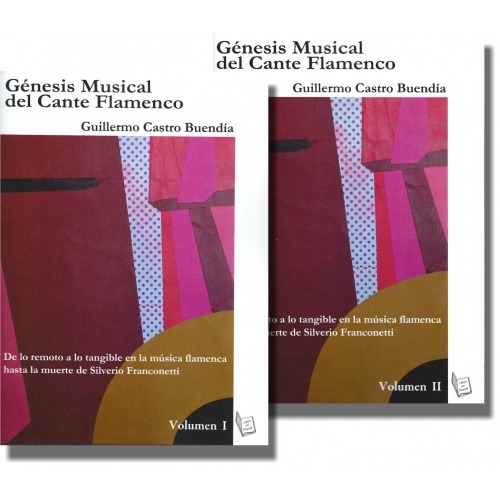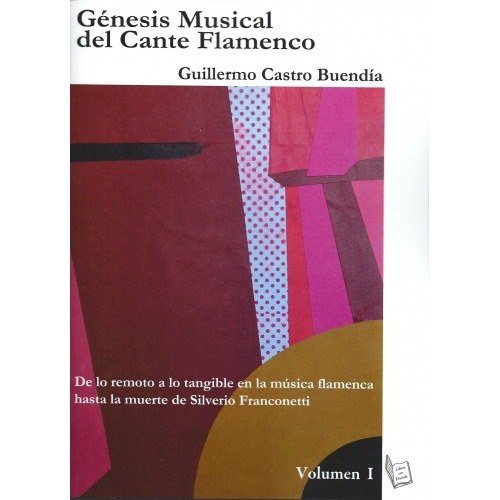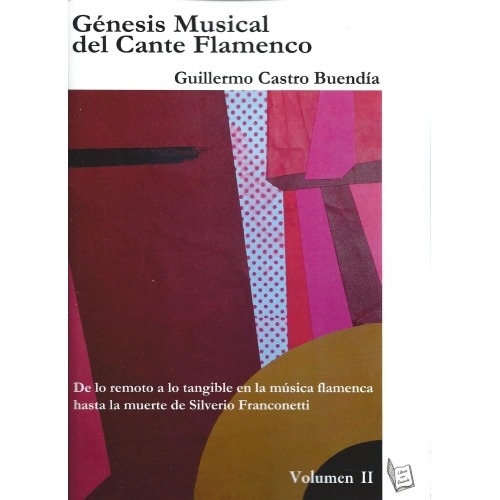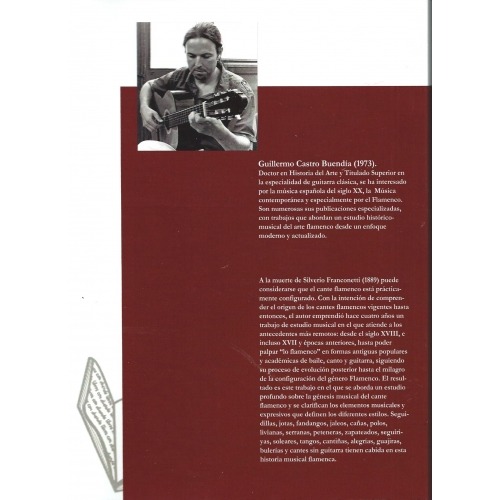Génesis Musical del Cante flamenco Vol 1 y 2
| Clase | Historia |
| Autor | Guillermo Castro |
Disponible
Génesis musical del cante flamenco Vol 1 y 2.
De lo remoto a lo tangible en la música flamenca hasta la muerte de Silverio Franconetti
Autor: Guillermo Castro Buendía
Formato: 23,5 x 17 cms
Volumen I: 855 Páginas
Volumen II: 1786 Páginas
Idioma: Español
A la muerte de Silverio Franconetti (1889) puede considerarse que el cante flamenco está prácticamente configurado. Con la intención de comprender el origen de los cantes flamencos vigentes hasta entonces, el autor emprendió hace cuatro años un trabajo de estudio musical en el que atiende a los antecedentes más remotos: desde el siglo XVIII, e incluso XVII y épocas anteriores, hasta poder palpar “lo flamenco” en formas antiguas populares y académicas de baile, canto y guitarra; siguiendo su proceso de evolución posterior hasta la el milagro de la configuración del género Flamenco. El resultado es este trabajo en el que se aborda un estudio profundo sobre la génesis musical del cante flamenco, y se clarifican los elementos musicales y expresivos que definen los diferentes estilos. Seguidillas, jotas, fandangos, jaleos, cañas, polos, livianas, serranas, peteneras, zapateados, seguiriyas, soleares, tangos, cantiñas, alegrías, guajiras, bulerías y cantes sin guitarra tienen cabida en esta historia musical flamenca.
Guillermo Castro Buendía (1973). Doctor en Historia del Arte y Titulado Superior en la especialidad de guitarra clásica, se ha interesado por la música española del siglo XX, la música contemporánea y especialmente por el Flamenco. Son numerosas sus publicaciones especializadas, con trabajos que abordan un estudio histórico-musical del arte flamenco desde un enfoque moderno y actualizado.










